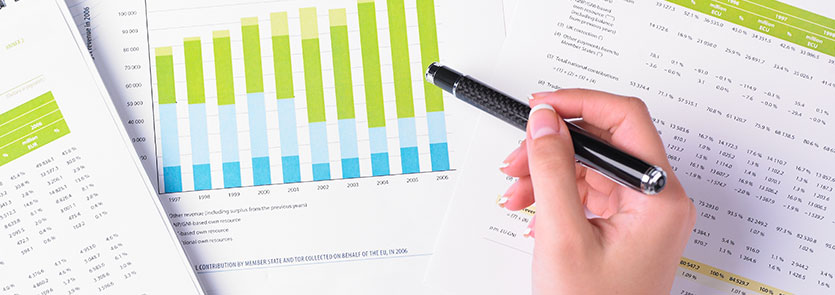Business
Accounting Tools Critical for Business Processes and Procedures


An essential part of the success of any business is accounting – knowing how much money is being expended and how much is coming in. You need to make sure that your business is profitable, that you are bringing in more money than you have to spend to keep things running. But this is a complex question, and often it’s not easy to see a clear picture of the answer until well after the fact, when the money has already been lost.
The solution is to make sure your accounting, whether it’s done by a department, an individual, or just yourself – is both thorough and accurate. Adopt the following tools and practices to take your business’ accounting to the next level and ensure that things are running smoothly.
Establish Budgets and Stick to Them
It’s common for businesses to establish annual or semiannual budgets, and doing so is a good idea for a number of reasons. You’ll start out the year by planning how much money you intend to put into each of your business’ expenses, so it will be easier to keep track of and therefore, not exceed the amount you can afford.
When you build your budget, you should begin by looking at last year’s records. How much money did you spend, and how much did you bring in? Use these figures to project what the coming year will look like. Make a list of your business expenses. Can you trim the amount you’ve been spending in any areas? If so, you’ll give yourself the option to devote that money to another area of the business to stimulate growth, or to increase your profit directly.
An enterprise performance management (EPM) system can help you track your budget and ensure you keep to the plan. Living within your budget is a great way to make sure your business performs according to plan.
Utilize Cost Allocation
Cost allocation is a budgeting tool for those aspects of your business that do not have a concrete cost associated with them. Because it is difficult and sometimes impossible, to precisely forecast these costs, cost allocation is a tool that gives you a way to estimate. The ultimate goal of cost allocation is to spread the expense associated with a specific facet of your business appropriately, so the cost is borne in proportion by those departments or individuals who ought to be paying for it.


Track Financial Statements
In order to plan for the upcoming fiscal year, it’s important to keep track of how your business performed in the past. You should keep careful track of every financial statement, including – but not limited to – income, cash flows, and tax returns. You can take these papers to a professional accountant to help you analyze your finances, shore up weak spots, and prepare for the coming year. A good accountant, such as Nguyen CPA of Denver, can assist with many different aspects essential to managing the finances of your business:
- Tax preparation
- Budgeting and financing
- Payroll management
- Accounts payable
- Accounts receivable
And, in many cases, much more.


Forecasting
Forecasting is a complex tool, but it can help you predict trends in the market and be prepared for what’s next in your industry. You can gain information by reviewing the history of your business itself as well as trends among your target demographic. It’s also a good idea to look at how your competitors are doing and compare their performance in the market to your own.
Having your accountant look over your books and make sure everything is in order is critical to the success of any business. Use the tools mentioned here to ensure that your bottom line is always met.





 Fashion2 months ago
Fashion2 months agoEtiquette & Tradition: Wearing Signet Rings with Crests



 Technology2 months ago
Technology2 months agoTroubleshooting Cloudflare Issues: What to Do When Cloudflare Isn’t Working



 Technology1 month ago
Technology1 month agoTop 5 AI-Powered Chatbots for Mobile 2024



 Business1 month ago
Business1 month agoLeading with Data: Crafting a Superior Business Intelligence Strategy



 Technology1 month ago
Technology1 month agoThe Importance of Product Reviews in the Digital Age



 Business4 weeks ago
Business4 weeks ago7 Ways CRM Helps to Improve Business Growth



 Movies3 weeks ago
Movies3 weeks agoMovies and TV Shows Coming to Hulu: Check the List to Catch Them All



 Technology4 weeks ago
Technology4 weeks agoSEO Marketing Strategies That Every Small Business Should Implement Today








You must be logged in to post a comment Login